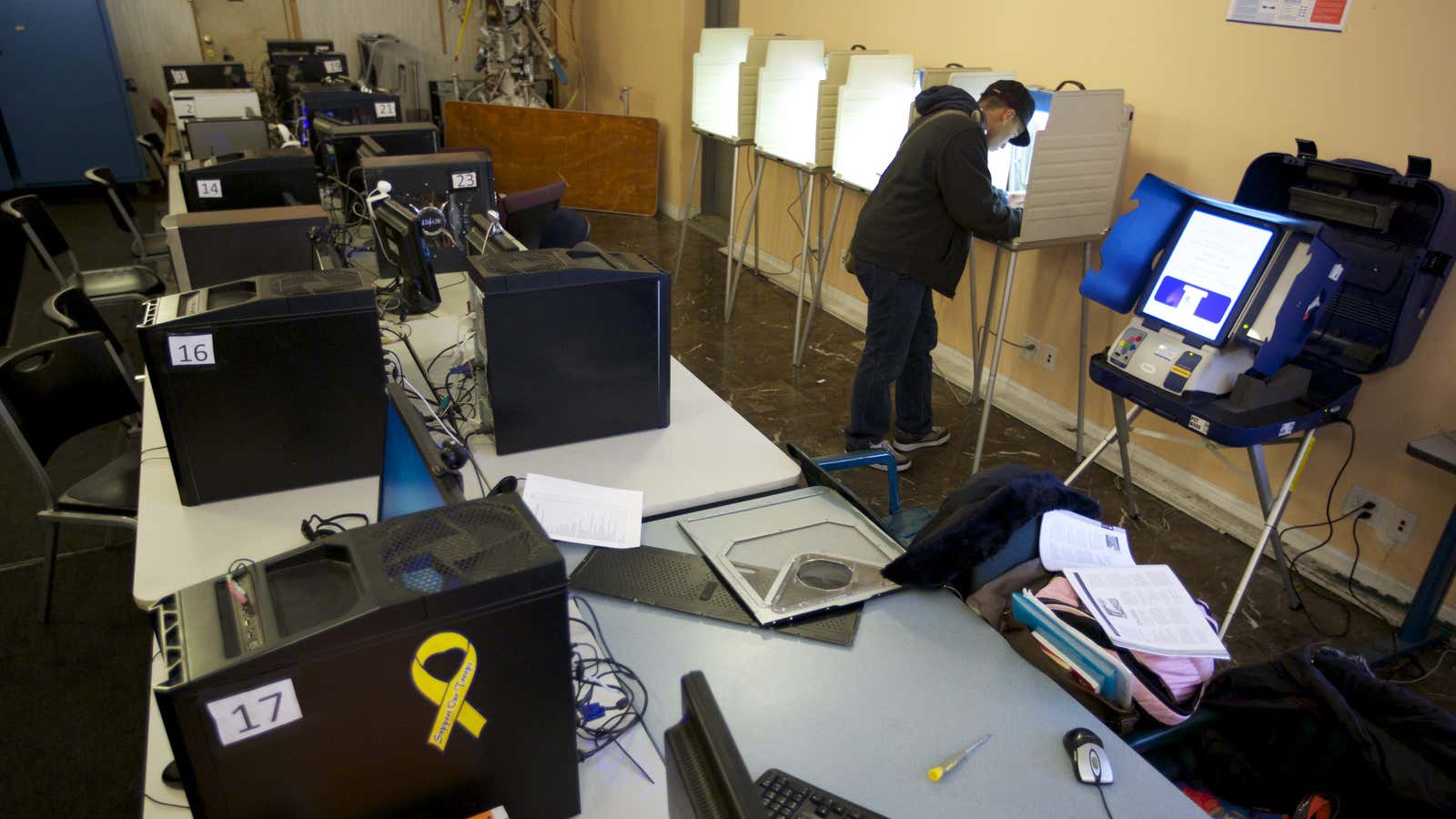Chicago voters faced a simple question on their 2020 ballots: “Should the City of Chicago act to ensure that all the City’s community areas have access to broadband internet?” By a nine-to-one margin, they answered “yes.”
The result is significant for what it says about public attitudes toward the internet. In the context of a broader debate about whether we should treat the internet like a public utility, Chicago voters signaled that the most basic formulation of this idea—that the government should make sure citizens have internet access—is overwhelmingly popular.
Support for universal internet access isn’t confined to left-leaning metropolises like Chicago. In the most rural parts of the US, communities are investing steeply in building their own broadband networks explicitly designed to cover every one of their neighbors. Small towns in red states are working to expand broadband access to every home and business, despite opposition from telecom lobbyists.
For cities smaller than Chicago, poor internet access is an existential threat. Mark McKinney, who heads an electric cooperative that has provided power to its members in rural Indiana since the 1930s, said his co-op began offering internet service to keep the community from hollowing out. “The board realized our members were lagging behind,” he said. “By providing a broadband connection, maybe we’d keep them from moving to bigger cities.”
The Chicago ballot measure, by itself, won’t make citywide broadband a reality. The referendum was non-binding, meaning city officials are free to ignore it, and voters only supported internet access in the abstract, without having to actually think through the cost of making universal broadband access a reality. But it does give mayor Lori Lightfoot political cover for more projects like the $50 million public private partnership the city unveiled in July to bring broadband into the homes of 100,000 students.
That partnership, which will float the cost of wiring houses to broadband networks for the first time and funding four years of internet service, was motivated by an April study showing that in some Chicago neighborhoods, half of households have no access to the web. That kind of digital divide has stark implications for kids’ education during a pandemic—but also, for access to economic opportunity more broadly.
Harvard law professor Susan Crawford argues that the internet must follow the path other basic services, like electricity, took from being a demand-driven luxury to a publicly regulated utility. Governments in South Korea, Japan, Hong Kong, and Singapore made that shift early, and their residents have widespread access to low-cost fiber optic internet. With continued investments in initiatives like Chicago’s broadband project and federal grants for rural internet co-ops, the US could follow suit.
